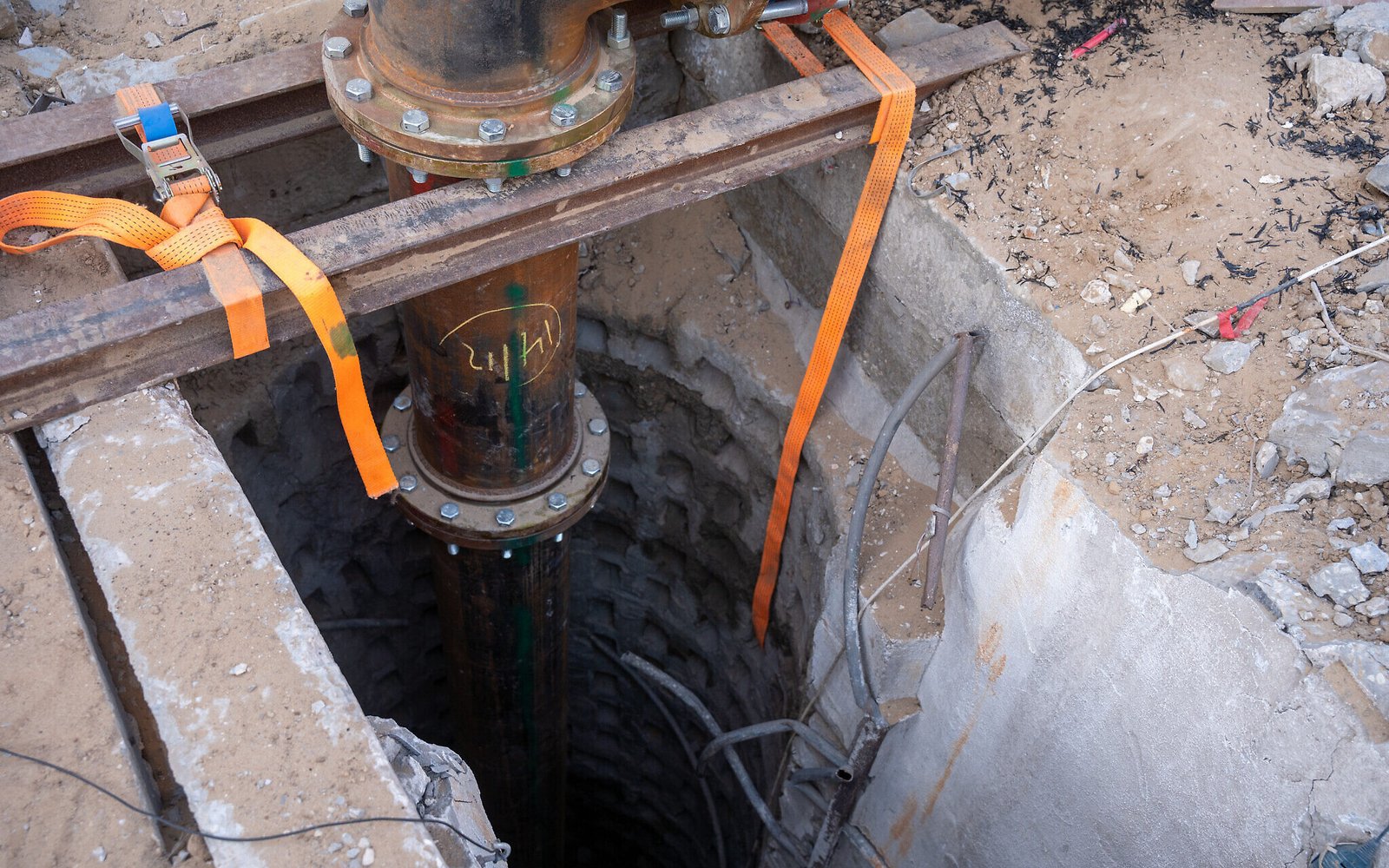The Israeli military announced on Tuesday that it has initiated the pumping of “large amounts of water” into the Hamas tunnels beneath Gaza with the goal of neutralizing the underground terrorist infrastructure. This strategy has been under consideration for approximately two months, but concerns have been raised about potential risks, including endangering hostages, and damaging the territory’s drinking water supply and sewage system.
The Israel Defense Forces (IDF) clarified in a statement that the water is only pumped into suitable locations after careful consideration of the soil and water systems in the area, aligning the method of operation with each specific case. The IDF termed this approach a “significant tool” in the ongoing fight against Hamas.
Hamas, a militant group, is estimated to have constructed over 350 miles of tunnels for hiding, storing weapons, and ammunition. Despite Israeli efforts to destroy these tunnels during a conflict that began on October 7, a recent Wall Street Journal report indicated that around 80% of the tunnels remain intact.
In a related development, an undercover Israeli military team infiltrated Ibn Sina Hospital in the West Bank city of Jenin, resulting in the killing of three militants. The attack has been described by Hamas leaders as an execution and a war crime. The Israeli military defended the action, stating that the militants had been using the hospital as a hideout while planning a major attack. The Palestinian Health Ministry released video footage showing gunmen in civilian attire moving through the hospital, drawing attention to the ongoing claim that militants use civilian spaces as shields.
Regarding the wider regional context, concerns have been raised about the Israel-Hamas war potentially spreading beyond Gaza due to a growing number of attacks by Iran-backed militias in the Middle East. Recent attacks by these militias have heightened tensions, leading to exchanges of fire between Hezbollah in Lebanon and Israel, disruptions in the Red Sea by Houthi rebels in Yemen, and over 160 attacks on U.S. bases in Iraq and Syria by militias supported by Iran.
In response to these challenges, Israel reiterated its commitment to maintaining military control over Gaza even after the war concludes, similar to the security control exercised in the West Bank. Defense Minister Yoav Gallant emphasized that while Hamas may not control Gaza, Israel would retain military control without impacting civilian governance.
Additionally, there are diplomatic developments, with President Joe Biden stating that he has made a decision on how to respond to the attack by Iran-backed militants in Jordan that killed three U.S. troops. The UK is considering formal diplomatic recognition of a Palestinian state, aiming to provide Palestinians with a “political horizon” and contribute to a two-state solution. However, Israeli Prime Minister Benjamin Netanyahu remains steadfast in his commitment to “total victory” over Hamas, rejecting the withdrawal of Israeli troops from Gaza or the release of thousands of Palestinian prisoners as part of any peace deal.
These events underscore the complex and dynamic situation in the region, involving military operations, diplomatic considerations, and the ongoing challenges of the Israel-Hamas conflict.
